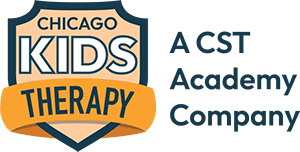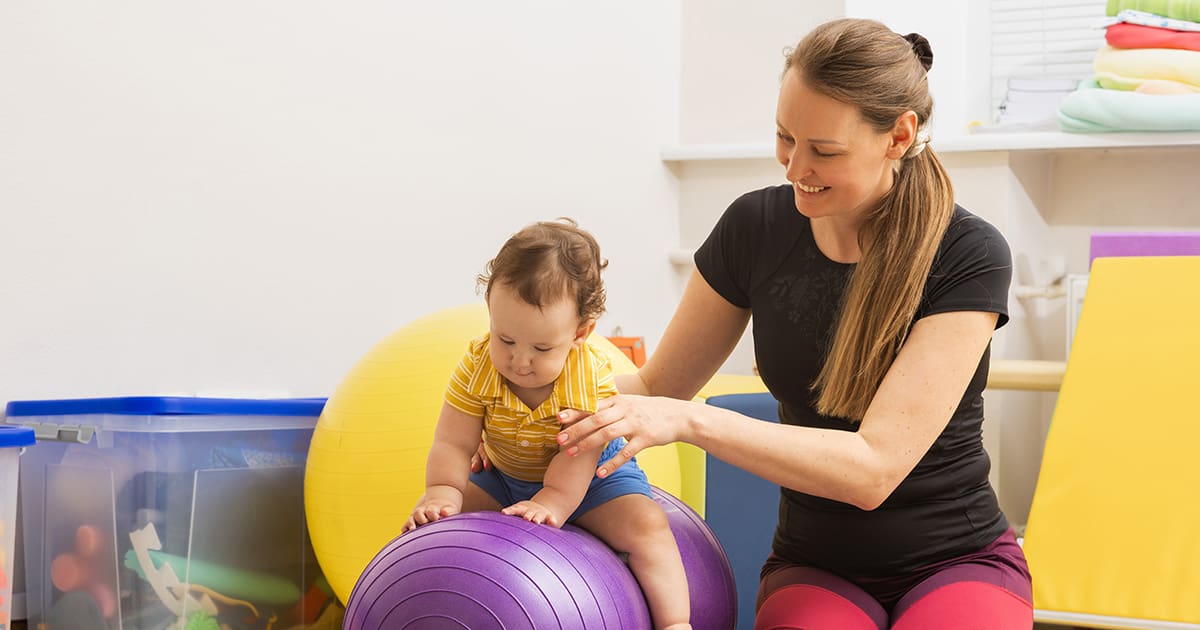Gross motor skills involve the large muscle groups that support movement, balance, and coordination, enabling children to sit, crawl, stand, walk, run, jump, and climb. As children grow, they develop greater body awareness, control, strength, and reaction speed, allowing them to refine movement patterns and engage more actively with their environment.
While each child develops at their own pace, gross motor milestones typically follow a predictable sequence, with earlier achievements laying the foundation for more complex movements. Below is a general guideline of key gross motor milestones by age.
Gross Motor Milestones by Age
3 Months
- Raises head and supports body with arms during tummy time
- Moves arms and legs smoothly
- Rolls from side-lying to back
- Pushes feet onto a firm surface
- Brings hands to mouth
6 Months
- Rolls over from front to back and back to front
- Sits up, using arms for support
- Rotates head to both sides to track a toy
- Pushes up on elbows when on the stomach
- Brings feet to mouth and grasps feet with hands
- Rocks back and forth on hands and knees
9 Months
- Crawls on hands and knees
- Sits up independently
- Pulls self into a standing position
- Reaches for objects while sitting without falling
- Extends arms forward to break a fall
12 Months
- Walks while holding onto furniture for support
- Takes 2-3 independent steps
- Stands with minimal support
- Moves from standing to sitting without falling
- Stops a backward fall by extending arms
18 Months
- Walks independently without frequent falls
- Squats to pick up toys and stands back up
- Holds a kneeling position
- Climbs stairs using hands and knees
- Takes steps backward
- Throws a ball while standing
2 Years
- Walks forward, backward, and sideways
- Carries multiple toys while walking
- Kicks a ball
- Throws a ball overhand and underhand
- Walks up and down stairs with assistance
- Runs with improved coordination
- Stands on tiptoes
- Climbs furniture and playground equipment
- Slides independently
- Jumps forward with both feet together
- Jumps down from a low surface
3 Years
- Climbs and runs confidently
- Pedals a tricycle
- Walks up and down stairs with alternating feet without assistance
- Stands on one foot for a few seconds
- Catches a ball
4 Years
- Hops on one foot
- Performs a forward roll
- Gallops
- Throws a ball overhand and catches a bounced ball most of the time
5 Years
- Balances on one foot for 10 seconds or longer
- Throws a ball with good accuracy
- Completes 5 sit-ups
- Jumps over obstacles
- Swings on a swing independently
6 Years
- Moves rhythmically to music or a beat
- Runs with speed and endurance
- Skips
- Performs push-ups with proper form
Why Are Gross Motor Skills Important?
Gross motor development is crucial for physical independence, coordination, and participation in everyday activities. These skills help children engage in play, sports, and social interactions while supporting foundational movements necessary for fine motor skills, posture, and overall strength.
If you notice delays in your child’s motor development, early intervention can help address challenges and support their progress. Pediatric physical therapy can enhance balance, strength, coordination, and overall movement efficiency through play-based exercises and structured activities.
Does Your Child Need Support with Gross Motor Development?
Every child develops at their own pace, but if you have concerns about delayed movement milestones, frequent falls, or difficulty with coordination, a pediatric physical therapy evaluation may be beneficial. Contact Chicago Kids Therapy today to learn how our experienced therapists can help your child build confidence and independence through movement.


